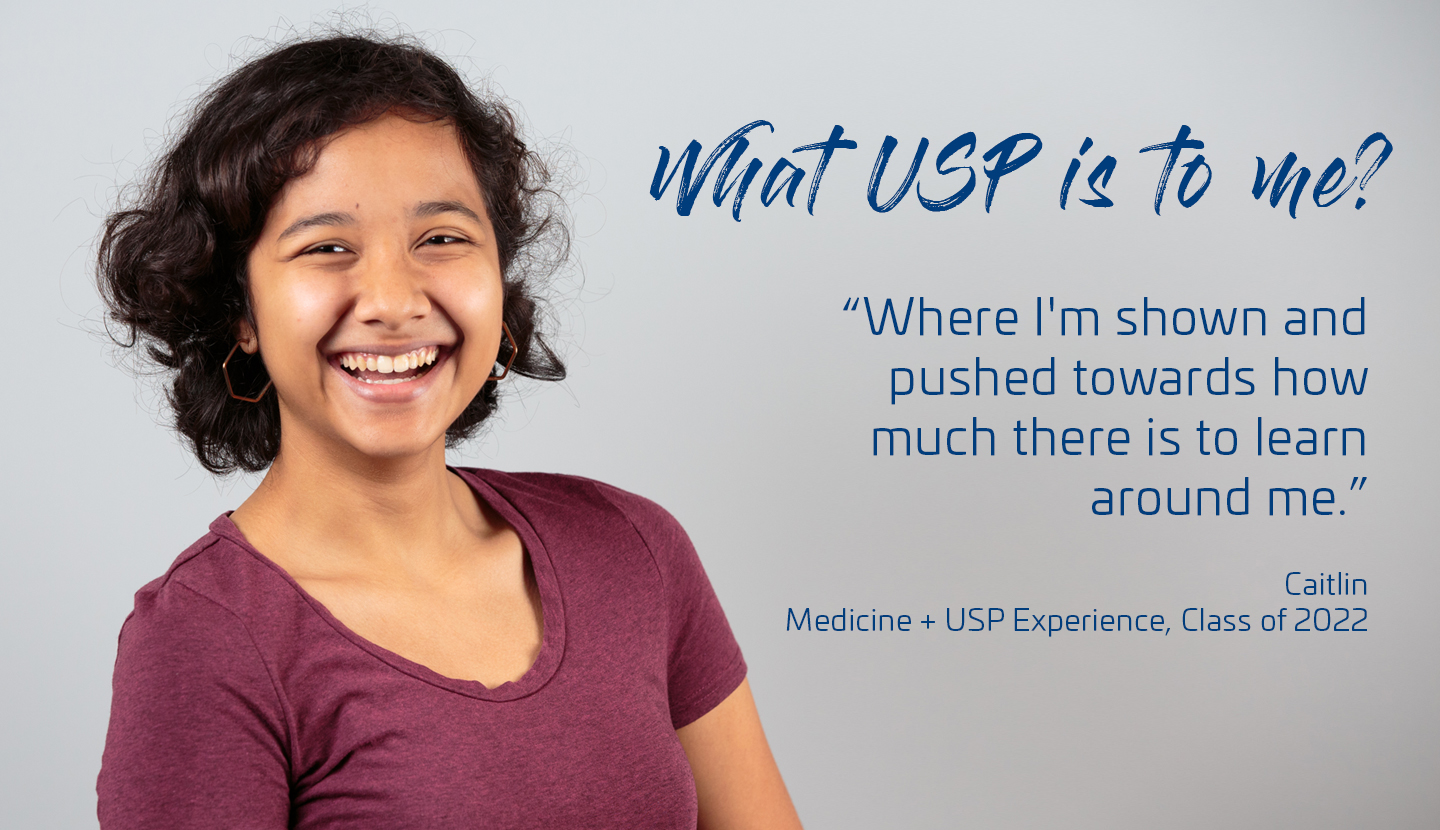USP Experience
Published: 25 March 2019
The University Scholars Programme (USP) offers an “USP Experience” to a few selected students who eventually matriculate with the NUS Yong Loo Lin School of Medicine. To help these students manage both USP and Medicine programmes, they read fewer USP modules, but are expected to stay in the USP residential college (Cinnamon College) and be actively involved in the college and out-of-classroom activities over the course of about two years. We ask Caitlin O'Hara (Medicine + USP, Class of 2022) about her “USP Experience”. Here is what she says!

Being in USP and Medicine has been wonderful! It definitely has come with its fair share of clashing schedules and late nights, and it would be a lie to say that I never once regretted the decision of taking up USP while pursuing my medical studies. I worried over if I was spending too much time on either of these (which could have been solved by not trying to juggle them), or heading back to my college room to edit a 3,600-word USP essay instead of celebrating after my Medicine finals. All said and done, as I near the end of my time with USP, I can very confidently say it has been worth it. I will definitely be back to the college, to give back after all it has left me with, and to spend time with USP friends who have seen me through most of these two years of growth.
In my first semester, I took a Writing and Critical Thinking (WCT) module called Technologies of Home by A/P Barbara Ryan. Needless to say, Prof’s dedication and skillful teaching made me more deliberate with how I write and communicate – making sure I was using terms that my reader could understand, being careful not to leave any claims unqualified, and ensuring that what I wanted to convey was done so in the best way possible (we did this by drafting and re-drafting; it was an arduous process, but it proved to be very worth it). We were taught to recognise how our reading of new texts was being shaped by previous ones, and to distinguish facts from claims in other’s writing. Bringing these skills out of the WCT classroom, I have been more aware of the biases I have and where they stem from; I am better able to appreciate other’s opinions (and how they are not in themselves hard truths), but know I am equally entitled to justify my own views. Medicine may be full of hard facts about the human body, but different doctors still handle the same patient differently based on what they have seen in the past, and what they believe is best. There are seldom direct tie-ins between happenings in USP and my major, but each of them has shaped me to be clearer about how I approach medicine and everything else around me (which is so much more than my major and job will ever be).
You sometimes wonder if people are exaggerating when they say you have really meaningful conversations here in USP, but truly, you do. I’ve had the most honest talks with my friends here on all sorts of issues; we aren’t afraid to disagree or to be disagreed with, or to be told that we should consider looking at something differently because of certain biases we may have. What’s been lovely is that these friends are the same ones I see in the morning when I just woke up, whom I have gone for stress-relief/procrastination walks around University Town (UTown) with, and who have been around on some of the toughest nights. There are also the personable professors who push you to question and improve not just the things around you, but yourself. The people here have been the highlights of my USP experience, for they have made USP such a comfortable and enriching space.
USP is an amazing complement to studying medicine. Humbling and rewarding as it is to study the intricacies of the body and diseases in the School of Medicine, you may lose sight of other interconnecting, broader issues that surrounds illness and healthcare. USP has shown me how much more there is around me, through its modules which challenge me to think differently, and through its people who are not only diverse, but very driven. Those considering USP and Medicine should be ready to make sacrifices, like attending evening seminars after full days of lectures and lab work, or forgoing outings to work on non-medical assignments. But if you are willing to make these sacrifices to be exposed to more than what Medicine has to offer, USP may be the place for you, like it is for me.

